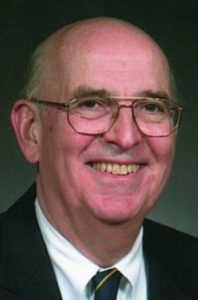FOCUS
What seems obvious now started as a revolutionary concept
By Learning Forward
Categories: OutcomesOctober 2012
Vol. 33 No. 5
There are some concepts in education, both old and new, that on their face sound absurd to the uninitiated. “New math.” What, does 2+2 not equal 4 this year? “Whole language instruction.” Or should we consider using just half of the language? How about adopting an “inquiry approach”? Presumably, the alternative would be never asking questions in science class. “Brain-based learning” writes its own punch line.
One of the most ridiculous of all would have to be “outcomes-based education.” Those in education know that the phrase, like so many, is loaded with all kinds of meanings and associations, both benign and controversial. The expression itself, however, raises a host of naïve questions. When was it groundbreaking to expect education to have outcomes? What is the purpose of schools if we don’t have expectations for some kind of results, even if they aren’t defined by accountability measures or standards?

And yet, in professional learning as in education as a whole, looking at learning outcomes rather than teaching inputs was not always a widespread perspective. When NSDC (now Learning Forward), with support from the Edna McConnell Clark Foundation, began the Results-Based Staff Development Initiative in 1997, programs that tied professional development to student outcomes were not easy to identify. Learning Forward Executive Director Stephanie Hirsh remembers how nervous she was when Hayes Mizell, now Learning Forward’s distinguished senior fellow, first took the stage at the 1997 NSDC Annual Conference, where he delivered a strong message that staff development had to result in improvements for students or it wasn’t worth the investment. She wondered whether the board would fire her for allowing such a controversial message.
The Outcomes standard from the 2011 Standards for Professional Learning demonstrates the field’s evolution. The standard asks anyone responsible for professional learning to make sure that the learning of adults is guided by the many standards documents that define what students are supposed to know and be able to do. Such documents include the math or science content standards, among others. At the same time, professional learning should take into account standards that outline what educators in various roles should know and be able to do. For educators, this means school leader or teacher leader standards, among others.
Standards documents that fall under the umbrella of the Outcomes standard encompass not only the academic content that students need and the pedagogical knowledge that educators must develop. Outcomes also include the many other elements that play a role in the learning environment, from family involvement to developing a safe and supportive culture in the school.
Explore articles in this issue of JSD to learn about schools that consistently make the connection between the learning of adults and the learning of students. Begin with Joellen Killion and Jacqueline Kennedy’s article on the standard itself and all it entails (see p. 10). Read about educators who examine exactly what it is that students need to learn and create their own learning agendas accordingly.
As with all of the professional learning standards, the Outcomes standard doesn’t work alone, these articles show. Those educators stressing outcomes often find that their best pathways are through learning communities that examine data. At the same time, identifying outcomes isn’t sufficient if the evaluation of professional learning indicates that the outcomes weren’t achieved.
Every profession develops its own jargon and acronyms to make sense of complex ideas. Probing the meaning of such terms and engaging in dialogue over their value are the actions that move us forward — toward meaningful outcomes.
Learning Forward is the only professional association devoted exclusively to those who work in educator professional development. We help our members plan, implement, and measure high-quality professional learning so they can achieve success with their systems, schools, and students.
Categories: Outcomes
Recent Issues
LEARNING TO PIVOT
August 2024
Sometimes new information and situations call for major change. This issue...
GLOBAL PERSPECTIVES
June 2024
What does professional learning look like around the world? This issue...
WHERE TECHNOLOGY CAN TAKE US
April 2024
Technology is both a topic and a tool for professional learning. This...
EVALUATING PROFESSIONAL LEARNING
February 2024
How do you know your professional learning is working? This issue digs...











